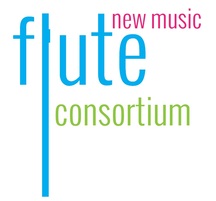Get to Know...Owen Eddy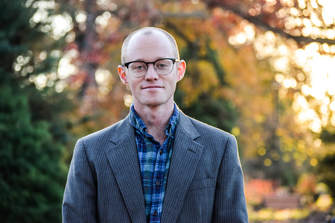 It is so fun to see recurring themes in what we learn from composers as well as to discover each composer’s unique musical perspective. Owen Eddy, like many of our composers was inspired to write for the flute by the open approach flutists have to new music. We’re always so pleased that flutists have such a positive reputation among composers! Owen is a saxophonist, another community of instrumentalists who openly embrace new music! Much like Carter Pann, Owen lives by the motto of writing music he would want to listen to! Owen has really diverse musical interests including folk music and jazz. We found it interesting to listen to some of his compositions with this in mind, there’s a definite diversity in his works that reflects the variety of his musical interests. We think you’ll enjoy listening to his finalist work “Mitchell Park, Charleston” which functions as the first movement in a larger work, titled Just Drop a Pin. Members will remember Owen’s work as After I Leave: The Park for flute, piano, and two percussionists (one playing vibraphone and glockenspiel and the other djembe and wind chimes). If you like "Mitchell Park, Charleston" it has not yet been premiered! Owen is the first military musician we’ve had the pleasure of working with. Owen is stationed at Fort Bragg where he is a staff saxophonist and shop arranger. Q&A with Owen… What about new music for the flute appeals to you? In the beginning it wasn’t so much the flute that appealed to me but the attitude of a flautist I was working with, Kari Boyer (grad student at the Manhattan School of Music). Her willingness not only to play new music but to sit down and discuss the mechanics of the flute piqued my interest in the instrument. Up to that point I was accustomed to people asking me not to ‘prepare’ the inside of their piano or bass clarinetists sweating at the thought of purposeful key clicks. After being introduced into a community of flautists, I found a real willingness to play new music and experiment with modern sounds. The technical and tonal versatility of the flute is something I have always admired, especially as it applies to extended techniques; but in recent months I have been inspired by the alto flutes’ almost primal tone quality. For me, the sound of the alto flute can take the most esoteric composition and lend it a perennial quality. Who are your favorite “new music” composers and why? Nico Muhly, John Luther Adams, Marcos Balter and Bryce Dessner are a few of my favorite composers. Nico Muhly has an uncanny ability to write convincingly in drastically different genres when co-writing with other musicians. I also admire the diverse musical community his compositions have espoused. John Luther Adams’ reverence for sound in the natural world deeply effects me. His work “Strange Birds Passing” has a regenerative purifying effect on me. Some of the most incredible flute compositions I have ever heard have come from the composer Marcos Balter. His work with Claire Chase has inspired me to seek a deeper relationship between my music and the performer. Describe your musical background and current activities. I grew up near Charlotte, NC playing saxophone, guitar, and piano for jazz and indie rock bands. During that time, I listened to a lot of Bob Dylan and Nick Drake who were (and still are) a source of inspiration for my own writing. During my undergraduate degree, I studied the saxophone, and that’s when I fell in love with new music. After graduation, my wife and I took a leap of faith and moved to Nashville TN where I recently finished my Masters in Composition. Toward the end of my degree I started working for the Army as a saxophonist and occasionally as an arranger. I am just beginning to find my own compositional voice outside of academia. When I am not playing a ceremony around Fort Bragg I do a lot of freelance arranging, and I also enjoy making bread and reading science fiction. Do you have a guiding principle or consistent sources of inspiration for your music? Yes, I have one guiding principle for my music, Write the music you want to listen to. This personal axiom often reminds me that I am not married to a genre, style, instrumentation, or even an idea of myself as a composer. Even my own likes and dislikes evolve over time, therefore so does my music. As for sources of inspiration, there are a few that are always with me. The first comes in the form of a quote by A.W. Tozer, “The most important thing about a person is what he thinks about who God is.” This statement often helps me locate within myself the germ of a feeling or idea. Sometimes I am able to bring them to musical fruition. The other is science fiction, namely authors Isaac Asimov and Cixin Liu. These particular inspirations have been impactful because I crave the sense of smallness that God, time, science, and music can give me. Do you have any upcoming events that you would like our friends and followers to know about? I just received an artist grant for 2018 which I am using to release “Just Drop a Pin,” a collection of chamber pieces depicting very precise locations. One of which “Mitchell Park, Charleston” was a finalist for your chamber music competition. I am still in the process of finding an ensemble and a recording studio to work with for this release. However, I will continue to post updates at my website oweneddy.com. Also for the last two years my wife Heather and I have been working on a new music inspired folk album titled “The Young American” which we plan to release in 2018. Updates on that project as well as past compositions and arrangements are also on my website. More About Owen… A native of South Carolina, Owen Eddy holds a BA in Saxophone Performance from Winthrop University and a MM in Music Composition from Belmont University. He currently works as a Saxophonist and Arranger for the United States Army Band stationed at Fort Bragg. Owen grew up playing and writing for jazz and indie rock bands around Charlotte NC. The singer-songwriter folk music genre is still an important source of inspiration for his music. His far-ranging tastes have born a versatility in his technique, leading to success in both arranging and composition. His minimalist jazz-inspired works explore themes of science and existence. With the help of several artist grants Owen has enjoyed working with instrumentalists in the studio as well as on the stage. When Owen isn't bent over the keyboard or jogging around Fort Bragg he enjoys baking bread and reading science fiction. If you liked Mitchell Park, Charleston (After I Leave: The Park)… Asaph Date of Composition: 2015 Instrumentation: flute and piano Duration: 6’24” Nevertheless, She Persisted Date of Composition: 2016 Instrumentation: flute quartet Two Places Date of Composition: 2015 Instrumentation: flute, clarinet, French horn, vibraphone, piano, and bass
0 Comments
Catch up With...Cherise Leiter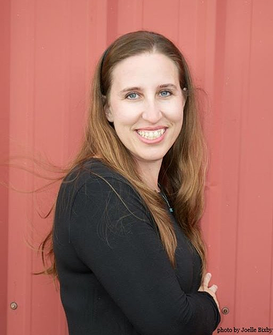 For those who follow our composer spotlights, Cherise Leiter may be a familiar face. She was a finalist in 2014 for her beautiful work for flute/alto flute and cello, Chroma. We loved the timbres she created in that duo and we were pleasantly surprised when it was revealed that she was the winner of this year’s chamber music category for The Life in the Day for flute/alto flute, guitar, and cello. Again, she deftly creates unique and beautiful timbres and beautiful melodies, this time adding the guitar to the ensemble she so skillfully composed for in Chroma. We're pleased to share that Cherise will be meeting with Nicole Riner, our wonderful Membership and Communications chair, in 2018 and we look forward to sharing their conversation, but in the meantime we wanted to give you all an opportunity to catch up with Cherise. We look forward to hearing two works Cherise completed recently, a duo for two flutes entitled Vignettes and a work for flute and fixed electronics, Penitence and Praise. We’re also really pleased to learn that Chroma has been recorded. There are more details about all of these exciting announcements in the Q&A below! Q&A with Cherise… What about new music for the flute appeals to you? One of the things I love about the flute is that despite its ancient and glorious lineage and the tremendous body of literature written for it, we can still discover new sounds, new techniques, and new effects. That is what appeals to me so much when writing for the flute. I play just enough flute to be a danger when writing for it, and I love experimenting with techniques, fingerings, etc. While my chamber piece "The Life in a Day" is in the more traditional vein, I still had fun exploring meter and tone color. I also love the fact that flutists really dig new music and are not the least bit scared of it! That is VERY attractive from a composer's point of perspective. Describe your musical background and current activities. I have a Bachelor’s degree in music theory, and was perfectly content in my Common Practice literature and analysis, until I had to take a class that was intended to introduce theory majors to the art of composing. I entered it kicking and screaming (at least internally), and left it headed to graduate school as a composition major. I have composed a number of pieces for flute in the past few years—primarily in chamber settings—and have enjoyed it very much. I now have a piece for flute and fixed electronics (Penitence and Praise) that was a commission from Colleen White, which pushed me into a new area. I also recently finished a flute duo which was commissioned and premiered by Naomi Seidman and Cristina Ballatori at the most recent NFA conference. Outside of the flute world I am finishing up a piece for wind ensemble (although it does have flutes in it!) and also working on a piece for solo piano—a set of etude variations on the folk song written by the female outlaw, Belle Starr. Do you have any upcoming events that you would like our friends and followers to know about? I am thrilled that “Chroma,” a piece I composed for flute and cello (and that was an FNMC finalist in 2014), has been recorded by the Jano Duo on their recent CD “Dreaming in Color.” They did an AMAZING job with it, and with the pieces of five other composers—all recent pieces! What advice can you give to flutists about approaching new music in practice? Advice to flutist when approaching new music: don't be afraid to play around and try new sounds and timbres, even if they are not what we traditionally think of as 'pretty' sounds. As a composer I love all the colors the flute can produce! More About Cherise… Born in Florida, Cherise Leiter received a B. M. in Music Theory and an M. M. in Composition from the University of Florida where she studied with Dr. Budd Udell. She is currently Professor of Music at Metropolitan State University of Denver, teaching music theory and composition. A composer whose output includes works for choir, piano, voice, band, orchestra and assorted chamber ensembles; her compositions have been performed throughout the United States, Canada, Scotland, France, Italy, Romania, and Japan. She was a featured composer at the New Music Symposium, the University of Central Missouri’s New Music Festival, the Aspen Composer’s Conference, the Women Composers Festival, the Atlantic Center for the Arts, June in Buffalo, and Brush Creek Foundation for the Arts. In her spare time, Ms. Leiter is an avid knitter, hiker, swimmer, cook, and bibliophile. She also has a vested interest in anything made of chocolate. She can be reached at [email protected], or www.cherisedleiter.com. If you liked The Life in a Day… American Folk Suite Instrumentation: flute and soprano Duration: 11’ Chroma Instrumentation: flute/alto flute and cello Duration: 9’ Chromaticity Instrumentation: flute/alto flute, clarinet and bassoon Duration: 9’ Penitence and Praise Instrumentation: flute and fixed electronics Duration: 9’ Prelude and Fugue Instrumentation: flute choir Duration: 7’15” Sacred Harmony Instrumentation: flute choir The Life in a Day Instrumentation: flute, guitar, cello Duration: 18’ Vignettes Instrumentation: flute and alto flute Duration: 6’ Get to Know...Julie Barwick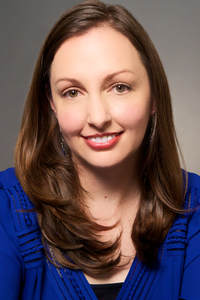 Flutists love a good duet! We can always find a friend to play with and they’re great to program on guest artist programs with the hosting teacher as well as for flute fairs/conventions, and of course, to use with our students to help them improve as chamber musicians. Julie Barwick has introduced us to another great option this year with Conversations for two flutes (flute two doubles on alto flute). Conversations was a finalist work in the flute duo category. You can listen to a great recording on Julie's SoundCloud page. Julie has several other works for flutes, including a recently completed flute trio, Personal Space, commissioned by Areon Flutes. We were also excited to see that Julie is an advocate for women in the creative arts through her Helia Arts Collective. As an organization run by women, we’re always super excited to see women advocating for the arts and female composers. Julie is joining a fantastic group of female composers who have found success in our completely blind competition. Of the 13 winning compositions, five were written by women and eight of twenty-seven winning and honorable mention works were composed by women. Overall of the forty-six composers who have been selected as finalists, honorable mentions or winners roughly a quarter (11/46) are women and two of them were finalists in multiple years! Of the total pieces honored, 14 out of 56 (an exact quarter) are by women! We’ve loved seeing that the blind process has resulted men and women, young and old(er) (18-72), from all over the US and fifteen countries being honored for their work. We love that your background is irrelevant in our competition, your music speaks for itself! Q&A with Julie… What about new music for the flute appeals to you? As a composer, I find the extreme versatility and agility of the flute very exciting. The wealth of sounds that can be created with just a solo flute is astounding. In my experience, I also find flutists to be some of the most dedicated and open-minded musicians, especially when it comes to creating new music. I wrote Conversations for Siroko Duo (Jessie Nucho and Victoria Hauk) and not only are they both amazing flutists, open to nearly anything, but they are also strong champions of commissioning and performing new music. Who are your favorite “new music” composer/s and why? The list of my favorite new music composers is impossibly long, but I do want to highlight the Common Sense Composers Collective, and especially the composers Belinda Reynolds, Dan Becker, and Marc Mellits. They have inspired me through their teaching (I have both studied with Becker and Reynolds), their collective philosophy that emphasizes collaboration, and of course their music. Describe your current activities. Currently, I am focused on two main projects. The first is I am the 2017-18 Composer-in-Residence for Elevate Ensemble, a San Francisco Bay Area new music ensemble. I have two commissions from them, and currently working on the second, a chamber symphony. I am also a recent co-founder of Helia Music Collective. I formed Helia Music Collective with fellow composer, Emma Logan, as way for us to support the creative endeavors of women in music. Earlier this year we had our first concert/collaboration with Siroko Duo that featured all new music written by women. We are currently planning our next project for 2018. Do you have any upcoming events that you would like our friends and followers to know about? As mentioned above, as part of my residency with Elevate Ensemble, I'm working on a commission for chamber symphony (including one flute!), to be paired with Schoenberg's pivotal Chamber Symphony. The concert will be at SOMArts in San Francisco, May 19. Details about the concert can be found here: https://elevateensemble.com/events/transformations/ More About Julie… Julie Barwick (b. 1983), is a composer and pianist originally from Southern California and now based in San Francisco. Drawing inspiration from her classical and jazz background, she not only enjoys writing for traditional chamber music ensembles, but also non-traditional ensembles as well as experimental jazz groups. Her music has been performed throughout the Bay Area and US, and was recently selected to be on the Verdant Vibes Benefit Concert in Rhode Island in February 2017. As a winner of the 2016 Areon International Composition Competition, she was commissioned to write her piece, Personal Space, for Areon Flutes. Julie is currently Elevate Ensemble’s 2017-18 Composer-in-Residence, and will be writing two new pieces for Elevate this season. Other recent projects include commissions from San Francisco Guitar Quartet, Siroko Duo, Jill Morgan Brenner, Carla Fabris, Andronica Trio, Hot Air Music Festival, and Ignition Duo through the Guerrilla Composers Guild. Julie received her B.A. in music from the University of California, Berkeley and her M.M. in music composition from the San Francisco Conservatory of Music. She has studied with composers Belinda Reynolds, Dan Becker, David Garner, Cindy Cox, and Henry Threadgill. Please visit her website at juliebarwick.com to learn more. If you liked Conversations… Flute only
Chamber, with flute
Get to Know...JP Merz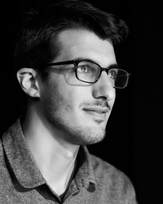 Many people might look at a score for two piccolos and electronics and say, “No Way!” Not our members, a lot of our members love to play the piccolo and drops on a living surface the winning work in the flute duo category this year is garnering a lot of interest from the membership. Composer JP Merz describes the pieces as one that “imagines the cone of a loudspeaker as a thin barrier between the physical and digital world -- a surface for drops of electricity to come alive. These drops begin quietly, almost bell-like, and accumulate into a majestic, electric rainstorm.” He skillfully exploits all of the ranges and colors the piccolo can produce in a really interesting work for a rare instrumentation. We think you’ll agree, there are two performances available on JP’s website. photo credit-Owen Zhou Q&A with JP… Describe your musical background and current activities. My love of music-making began in southern Wisconsin playing guitar in rock/jazz bands, viola in orchestra, and making strange electronic tracks on my family's computer. I always enjoyed creating in whatever style I was in, but when I was exposed to even more traditions in college, I became overwhelmed by the possibilities. At some point I realized that composition can focus all of my interests into one practice. Much of my work is concert music for classically-trained musicians but I frequently draw on my previous experiences in other traditions and also enjoy collaborating with musicians and artists from different backgrounds. I’ve made string quartets, electro-acoustic works, arrangements for singer-songwriter albums, custom performance software, feed-backing robotic objects, a voice controlled massage chair installation, among other things. Who is/are your favorite “new music” composer/s and why? Too many to list, but my one sentence answer is usually: anyone on New Amsterdam Records for their efforts in democratizing genres and supporting stylistically diverse projects. If I were to name a single, independent composer though, it would be Meredith Monk. Her relentless exploration of the voice and ability to convey emotion and story without words is always inspiring to me. What about new music for the flute appeals to you? Obviously the versatility and huge range of color is amazing to work with. But for me the main appeal is working with flutists themselves, who are always so supportive and excited about new music. That feeling comes from working directly with enthusiastic flutists on a pieces of mine, seeing flute teachers encouraging their students to work with composers or through the awesome efforts of FNMC. What advice can you give to flutists about approaching new music in practice? Don’t be afraid to take risks, try new things and truly interpret the music. In my opinion this is true for all music really, but especially for brand new or rarely performed works. As a composer, it’s a great feeling when the performer is more focused on making the piece their own rather than worrying about playing it “correctly” or even the way I intended. More About JP… JP Merz is a composer who works with classical, jazz, and rock musicians, as well as improvisers, dancers, electrical engineers, internet researchers, programming languages, and robots. His recent work explores intimate, emotion-driven, and kinesthetic experiences of sound. JP’s work has been performed by members of the JACK Quartet, Altius Quartet, Playground Ensemble, Iowa Center for New Music, and Colorado Music Festival Orchestra at places such as the Weill Hall of Carnegie Hall, New Music Gathering, Boulder Museum of Contemporary Art, Madison New Music Festival, San Francisco Fringe Festival, the Abrons Arts Center, record stores, coffee shops and living rooms. In 2016, he received support from the American Composers Forum's JFund for New Music and interned with his favorite new music series, Liquid Music. In addition to composing, JP performs on electric viola, guitar, and electronics with an eclectic variety of groups ranging from new music/improv ensembles to folk-rock bands. This fall he began his DMA in composition at the University of Southern California. http://www.jpmerz.com/ If you like drops on a living surface… an eagle flew Year of Composition: 2015 Instrumentation: soprano, viola, flute, and piano Duration: 5’05” Out, out Year of Composition: 2013 Instrumentation: flute and electronics Duration: 11’24” Get to Know...Jake Thiede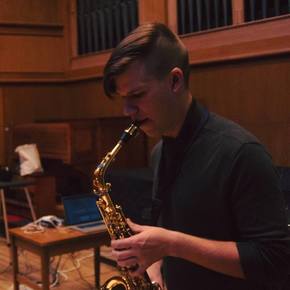 The flute and accompaniment category has traditionally been a very strong category with multiple high quality works and 2017 was no exception. Jake Thiede’s work for flute and computer And everything in-between was awarded the honorable mention in the flute and accompaniment category. Interestingly, this is the second work featured in the “12 Days of Composer-mas” that involved specific calculations in the compositional process (the other is from 2016, Daniel Miller’s Contrails for flute and electronics.) Although, you don’t hear this in either work, both are really engaging and masterful compositions with interesting musical ideas and colors. And everything in-between was commissioned by Krisztina Dér for flute and electronics with lighting. You can view a video of the performance on Jake’s website featuring Krisztina’s masterful performance of the work! We truly enjoyed her beautiful playing. We look forward to hearing performances of And everything in-between by our members very soon, we have a feeling it will soon be joining the standard repertoire of works for flute and electronics. Q&A with Jake… What about new music for the flute appeals to you? The liberation of sound that the instrument has experienced in the last half century. The flute has so many different timbres...and so many more to be discovered. As a saxophonist, I'm jealous of the flute's wide range of controlled dynamics and how many more octaves it can play than the saxophone. Who is/are your favorite “new music” composer/s and why? Right now I'm listening to a lot of Eric Lyon, David Lang, and György Ligeti. I think what draws me to their music (and influences my own music) are the varying degrees of clarity with touches of irony. What is/are your favorite “new music” piece/s and why? As of late, Michael Laurello's "Big Things." His use of different rhythmic systems and ride rhythms encourage me that there is just as much innovation/experimentation waiting to happen in rhythm as harmony or timbre. Describe your musical background and current activities. I grew up learning Suzuki piano and then played in a metal band through parts of high school and college. This mixture of classical and vernacular styles, cultures, and traditions in my musical upbringing has pushed me to challenge how I understand music and art to this day. I'm still learning... Do you have any upcoming events that you would like our friends and followers to know about? I will be performing my piece "While it was raining in the woods" at the 2018 SCI National Conference at the University of Puget Sound in Tacoma, WA sometime between March 1st-3rd. If any of my flute playing friends are there, let me know--we can hang out! More About Jake… Jacob (Jake) Thiede is a composer, saxophonist and current PhD student at the University of North Texas. Recently, his music has been championed by the Red Clay Saxophone Quartet, the 15.19 Ensemble, STACKS Duo, and pianist Kris Carlisle. Premieres and performances of Jake’s music have taken place in Italy and the United States, including Georgia, Hawaii, Iowa, Kentucky, Louisiana, North Carolina, Ohio, Tennessee, Texas, and Vermont. Recent honors and festivals include the Bowling Green State University Graduate Music Conference (2017), the National Student Electronic Music Conference (2016 & 2017), the Electric LaTex Conference (2016 & 2017), New Music on the Point (2015), and the HighSCORE Festival (2014). He received his BME at Murray State University and MM in music composition at the University of North Carolina at Greensboro. He has studied with Mike D'Ambrosio, Brian Ciach, and John Fannin at Murray State and with Mark Engebretson, Alejandro Rutty, and Steven Bryant at UNCG. As a saxophonist, he has studied with Scott Erickson and Steven Stusek. Current interests are grooves and rhythms in metal music, glitch, and the manipulation of sine tones. Jake studies composition with Kirsten Broberg and Andrew May as well as saxophone with Eric Nestler at the University of North Texas. www.jaketheedee.com/ If you liked And everything in between… Forgotten Places, Abandoned Buildings Instrumentation: pierrot ensemble Date of Composition: 2016 Get to Know...Daniel Miller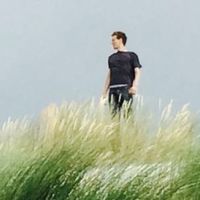 One of the most interesting elements of the composer features is to learn more about the inspiration for the works. We found it really fascinating to learn about the way Daniel Miller conceived of Contrails for flute and three-channel live electronics. Contrails was awarded the Honorable Mention in the flute and accompaniment category in 2016. Daniel began with the idea of a contrail, a trail left behind after something’s passing, and interpreted it in several ways. We can’t describe it better than Daniel, so we’ll quote from the program notes for the work “The electronics serve as a “contrail” to the flute, capturing and sustaining certain resonant frequencies of the flute’s sound. The whole work is also a contrail of Bach’s aria, “Aus Liebe Will Mein Heiland Sterben” from St. Matthew’s Passion, about the compassion of Christ’s self-sacrifice. Most of the material in this piece was derived from a spectral analysis of the aria. An original computer algorithm running in ACToolbox was used to “morph” smoothly between spectrally generated material and the original flute melody found in the aria. This interpolation occurs in nearly every parameter of the music (rhythm, pitch, dynamics, etc.). The effect is that one musical idea gradually recedes from the texture revealing a second idea hidden within or beneath it. As this patina dissolves, notes or phrases from the original aria are sometimes heard to emerge from the resonant, fluttering abyss from which the work begins.” Sometimes, we’ve found that works strongly based on an algorithm are fascinating in their construction, but lack a certain emotional content. This is not the case in Contrails it is a beautiful and haunting work, a testament to Daniel’s skills as a composer! Daniel is currently studying in India on a Fulbright Fellowship, we look forward to hearing new music inspired by his research and collaborations in Mysore! Q&A with Daniel… Describe your musical background and current activities. I've been lucky to have had an unremittingly varied and adventurous introduction to various sound practices. Although I have an undergraduate degree in contemporary music theory and composition, I also spent a year studying with "outsider" sound artists on three continents, developing an eccentric "prepared" field-recording practice through travels as a Thomas J. Watson Fellow. In 2015, I followed-up on my passion for intersections between music and technology, completing a master’s degree in digital musics at Dartmouth College. Currently I'm a Fulbright-Nehru Fellow based in Mysore, India, where my research and music composition has reflected various collaborations with Indian musicians and sound artists in and around the Bangalore scene. What about new music for the flute appeals to you? The flute is a very somatic instrument. The physicality of the lips and mouth and lungs and hands are very present in the sound, unmediated by strings or hammers or even a reed. I'm really interested in how that manifests in music and in performance, especially in the moments between steady, stable states where standing waves or controllable musical gestures start to break down. In composition, I want to explore how the artifice of stability and control can be peeled back to reveal the chaotic flux saliva, air pressure, and metallic movement. Tell us a bit about your compositional process. I consider myself a composer/programmer. A lot of my works are composed with the assistance of computer programs, either for pre-compositional calculations or for live audio processing and/or synthesis. More About Daniel… A native of Seattle (USA), Daniel Miller is a composer, programmer, instrument builder, and field recordist. His creative practice centers on perceiving and responding to the vitality latent in simple processes, materials, and technologies. Recent creative interests have included explorations of found objects, live animated interactive scores, and feedback cycles between performers and stochastic processes or acoustic automata. Daniel’s music has been performed in North America, Europe, and Asia. Past collaborators include Nouvel Ensemble Moderne, ensemble mise-en, the International Contemporary Ensemble, Ensemble l'Itinéraire, Sound Energy Trio, the NOW Ensemble, and Ensemble MotoContrario. His electroacoustic works have been accepted by conferences of the Society for Electroacoustic Music in the United States (SEAMUS) and the International Computer Music Association (ICMC), and his research on visual score representation and notation has been featured at the International Conference on Technologies for Music Notation and Representation (TENOR). In 2013 he was a recipient of a Thomas J. Watson Fellowship, a grant that made possible twelve months of research on music and technology in seven countries. In 2016 and again in 2017 Daniel was a recipient of the BMI Student Composer Awards. A former student of the Conservatorium van Amsterdam, Daniel is a recipient of degrees in music composition and philosophy from Lawrence University. Most recently he received his masters degree in Digital Musics from Dartmouth College where he was a music composition student of Ashley Fure. Daniel is currently a Fulbright-Nehru research fellow based in Mysuru, India, where he is advised by Dr. Mysore Manjunath at the University of Mysore. www.lontanomusic.com If you liked Contrails…. Hoquetus Perindens Date of Composition: 2012 Instrumentation: flute, clarinet, electric guitar, double bass, piano Duration: 3’ Ritual On a Poem By Whitman Date of Composition: 2012 Instrumentation: alto flute (doubling on flute), percussion (3 players), soprano, tenor, live electronics. Duration: 6’ Vela Sierra Date of Composition: 2016 Instrumentation: bass flute, accordion, violin, viola, double bass, and synthesizer |
AuthorThe Flute New Music Consortium is an organization dedicated to the creation and support of new music for the flute. Archives
June 2019
Categories
All
|

 RSS Feed
RSS Feed
